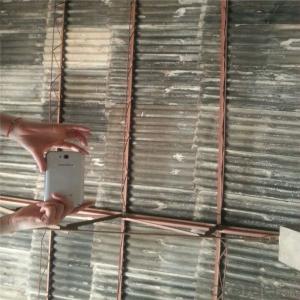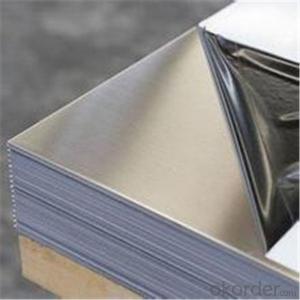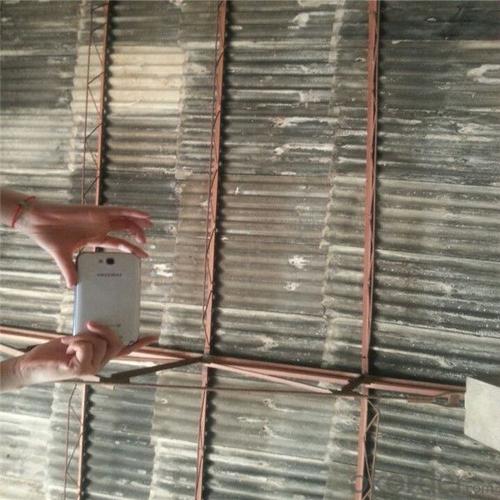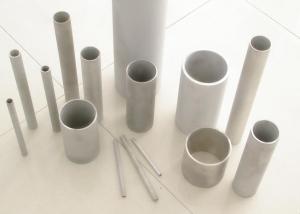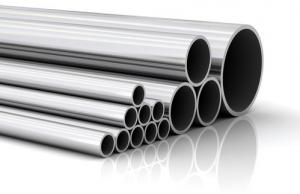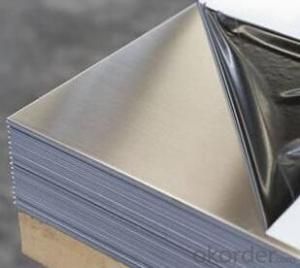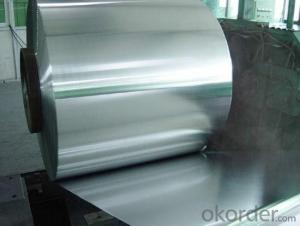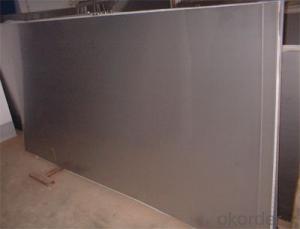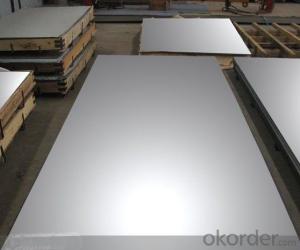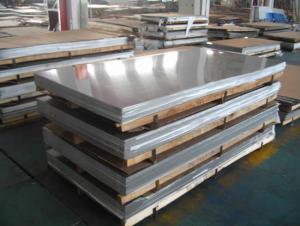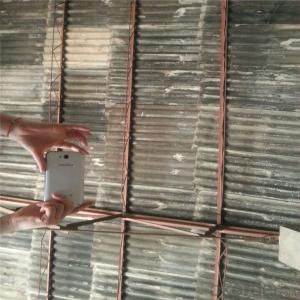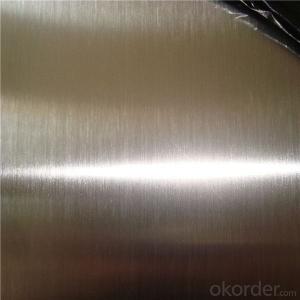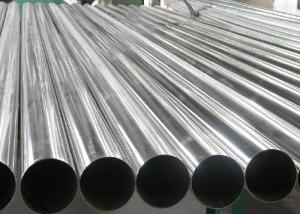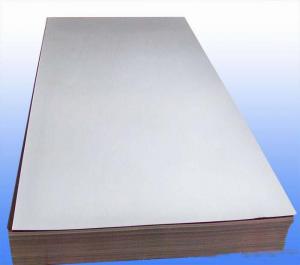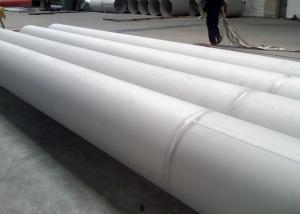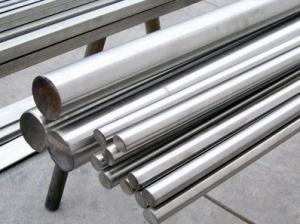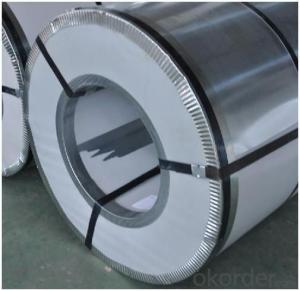Mirror polished Stainless Steel Sheet in Wuxi,China
- Loading Port:
- Shanghai
- Payment Terms:
- TT OR LC
- Min Order Qty:
- 2 m.t.
- Supply Capability:
- 1000 m.t./month
OKorder Service Pledge
OKorder Financial Service
You Might Also Like
Specification
Specifications of Mirror polished stainless steel sheet
| Grade | 300 Series:304 304L 316 316L 309S 310S 317L 347H 321 |
| Standard | ASTM, AISI, DIN, EN, GB, JIS |
| Length | 1500/2000/4000/6000mm |
| Thickness | 0.2-40mm |
| Width | 1219/1250/1500/2000 |
| Original | Tianjin, China (Mainland) |
| Brand Name | BAO STEEL, TISCO, ZPSS |
| Model Number | 304 316 316l |
| Type | Plate, Sheet, Coil |
| Application | Industrial used/decoration |
| Certification | ISO, BV, CE |
| Product name | Tisco 304 316 316l stainless steel sheet |
| Material | 304 316 316l stainless steel sheet |
| Surface | 2B, BA, HL, No.4, No.1, 2D, Sand, mirror polish |
| Technique | Cold Rolled , Hot Rolled |
| Edge | Mill edge or slit edge |
| Mill | TISCO or as request |
| Magnetic | Non-magnetic |
| Alloy | Non-alloy |
| Color | Natural Color |
| Packing | Interleaving Paper |
Chemical Composition
Chemical Composition of Material | |||||
Material Composition | 201 | 202 | 304 | 316L | 430 |
C | ≤0.15 | ≤0.15 | ≤0.08 | ≤0.035 | ≤0.12 |
Si | ≤1.00 | ≤1.00 | ≤1.00 | ≤1.00 | ≤1.00 |
Mn | 5.5-7.5 | 7.5-10 | ≤2.00 | ≤2.00 | ≤1.00 |
P | ≤0.06 | ≤0.06 | ≤0.045 | ≤0.045 | ≤0.040 |
S | ≤0.03 | ≤0.03 | ≤0.030 | ≤0.030 | ≤0.030 |
Cr | 13-15 | 14-17 | 18-20 | 16-18 | 16-18 |
Ni | 0.7-1.1 | 3.5-4.5 | 8-10.5 | 10-14 | |
Mo | 2.0-3.0 | ||||
Our Services
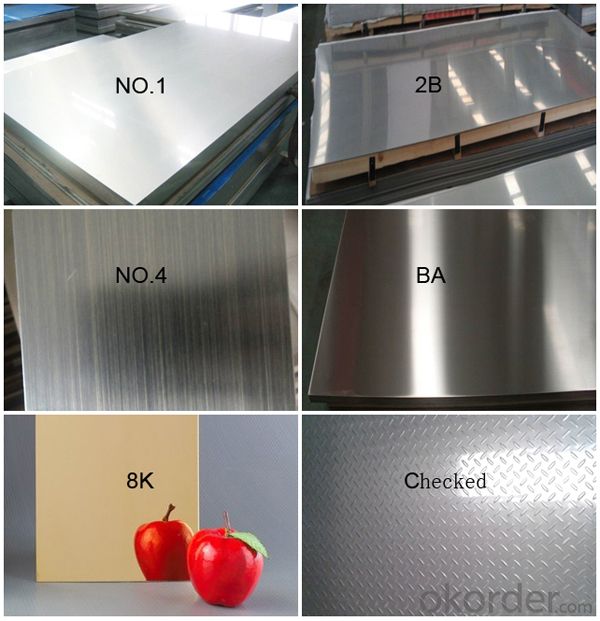
Surface finishes of stainless steel sheet
Finish | Thickness | Characteristics |
No. 1 | 2.0mm ~12.0mm | Surface finished by hot-rolling, annealing and pickling, characterized by white pickled surface. |
2B | 0.3mm ~3.0mm | Finished by heat treatment, pickling after cold rolling, followed by skin pass line to be brighter. |
BA | 0.3mm ~1.5mm | Processed with bright heat treatment after cold rolling. |
No. 4 | 0.4mm ~3.0mm | Polishing with No. 150 to No.180 abrasives. The most popular finishes. |
HL | 0.4mm ~3.0mm | Finished by continuous polishing streaks by using abrasive of suitable grain size. |
SB | 0.4mm ~3.0mm | Polishing with No. 150 to No. 180 Scotch-Brite abrasives. |
3. Production Flow about stainless steel sheet
Raw materials are sending to hot rolling units for rolling into different sizes
Hot rolled material is annealing in cold; rolled annealing furnace and pickling in acid.
All mill rolls are grinded on precision grinding machine with proper chamfering after first shiftoperation.
All sheets are pickled in different tanks and dried on brush roll machine before dispatched.
These sheets are again annealing and are sent to straighten machine for straightening.
Inspections are done at various stages. Keep proper control overall internal process via rolling,annealin and pickling by our experienced staff
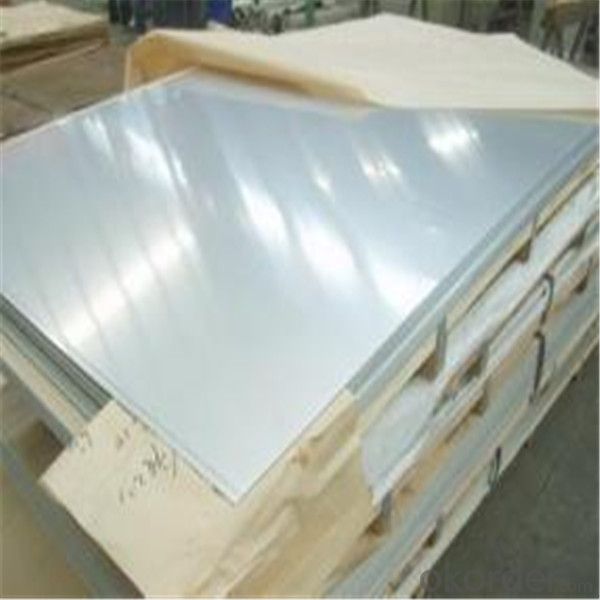
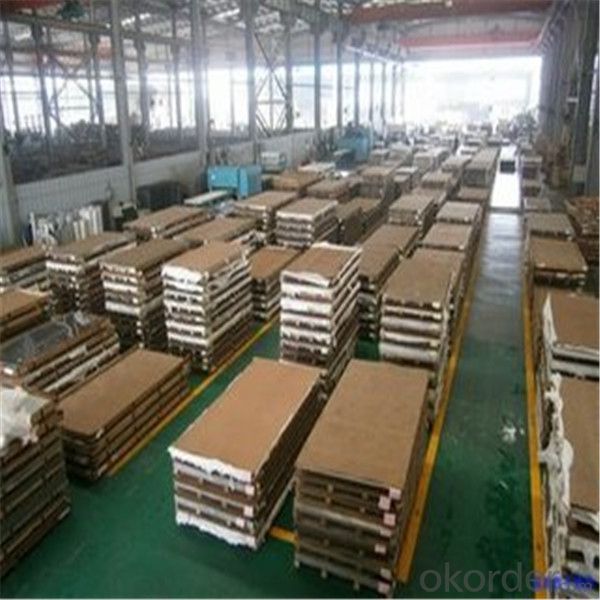
- Q: How do you remove rust from stainless steel sheets?
- To remove rust from stainless steel sheets, you can try using a mixture of baking soda and water to create a paste. Apply the paste to the affected area and gently scrub it with a non-abrasive cloth or sponge. Rinse thoroughly with water and dry the sheets completely. Additionally, you can use white vinegar or lemon juice by applying it directly to the rust spots and letting it sit for a few minutes before scrubbing and rinsing.
- Q: Can stainless steel sheets be used for decorative wall panels?
- Indeed, decorative wall panels can be crafted using stainless steel sheets. Stainless steel, a highly versatile material, lends itself effortlessly to shaping and manipulation, enabling the creation of numerous designs and patterns. Its sleek and contemporary appearance has made it a favored option for both contemporary and industrial-style interiors. Furthermore, stainless steel sheets come in a variety of finishes, including brushed, mirrored, and textured, offering further customization and enhancing the visual appeal of the wall panels. Moreover, stainless steel boasts resistance to corrosion, durability, and easy maintenance, rendering it suitable for high-traffic areas or environments prone to moisture or humidity. In summary, stainless steel sheets present an elegant and practical solution for decorative wall panels.
- Q: How do you determine the thickness of stainless steel sheets required for a specific application?
- To ascertain the necessary thickness of stainless steel sheets for a particular application, one must take into account various factors. 1. Load-bearing capacity: The initial step involves determining the maximum load that the stainless steel sheets will need to bear. This can be calculated by considering the weight of the objects or materials that will be placed on the sheets. It is essential to factor in any potential dynamic loads or impact forces that may be exerted. 2. Deflection limits: Deflection pertains to the degree of bending or sagging that occurs when a load is applied to the stainless steel sheets. The limits of deflection will depend on the specific application and the desired performance of the sheets. In general, minimizing deflection is vital for structural integrity and ensuring that the stainless steel sheets can withstand the intended load without excessive bending. 3. Material properties: Stainless steel sheets come in different grades, each possessing its own mechanical properties. The tensile strength, yield strength, and hardness of the stainless steel should be taken into consideration to ensure it can withstand the required load and any potential environmental conditions, such as corrosion or extreme temperatures. 4. Safety factors: It is crucial to incorporate appropriate safety factors to provide a margin of safety for the stainless steel sheets. Safety factors account for uncertainties in load calculations, material properties, and other variables. The safety factor may vary depending on the desired level of confidence, but it is typically recommended to apply a safety factor of at least 1.5 to 2. 5. Industry standards and regulations: Depending on the specific application, there may be industry standards or regulations that specify the minimum thickness requirements for stainless steel sheets. It is important to consult these standards and ensure compliance to guarantee that the sheets meet all safety and performance requirements. By considering these factors and conducting engineering calculations, one can determine the appropriate thickness of stainless steel sheets needed for a specific application. It is always advisable to consult with an experienced engineer or a reputable stainless steel supplier to ensure accurate calculations and to address any specific requirements or unique considerations pertaining to the application.
- Q: Welding defects analysis of 1.5mm stainless steel plate
- Shape defects - the appearance quality is rough; the wave height and width of the fish scales change abruptly; the welding seam and the parent material are not smooth transition.The main reason is improper operation, repair caused.The damage is stress concentration, weakening the carrying capacity.Weld size defectThe size does not conform to the construction drawings or technical requirements.The main reason is the improper operation of the builderHazard: small size, small load cross section;The large size weakens the fatigue strength of some structures subjected to dynamic loads.
- Q: Which is better, stainless steel plate kitchen?
- According to the organizational structure of classification at room temperature, a martensitic, Austenitic, Ferritic and duplex stainless steel; according to the classification of the main chemical components, basically can be divided into chromium and chromium nickel stainless steel two systems; by use of minute nitric acid resistant stainless steel, stainless steel, stainless steel corrosion resistance to sulfuric acid and so on, according to the corrosion resistance the type can be divided into stainless steel pitting corrosion, stress corrosion resistant stainless steel, intergranular corrosion resistant stainless steel etc.;
- Q: How do you prevent pitting or crevice corrosion on stainless steel sheets?
- To prevent pitting or crevice corrosion on stainless steel sheets, there are several measures that can be taken: 1. Proper alloy selection: Choosing the right grade of stainless steel is crucial. Grades with higher levels of chromium, molybdenum, and nickel provide better resistance to corrosion. 2. Surface finishing: Ensuring a smooth and clean surface is essential to prevent corrosion. Rough surfaces or scratches can act as initiation sites for corrosion. Polishing or electropolishing the stainless steel sheets can help create a smoother surface. 3. Regular cleaning and maintenance: Regular cleaning using mild detergents and non-abrasive cleaners is important to remove contaminants that may corrode the stainless steel sheets. It is also necessary to avoid using chlorine-based cleaners or abrasive materials that can damage the protective oxide layer. 4. Avoiding stagnant conditions: Pitting and crevice corrosion are often intensified in stagnant environments. Ensuring proper drainage and avoiding the accumulation of stagnant water or debris can help prevent this type of corrosion. 5. Control of environmental factors: Stainless steel sheets should be protected from exposure to aggressive chemicals, such as chloride-containing solutions or acidic substances. Proper ventilation and humidity control can also help reduce the risk of corrosion. 6. Use of protective coatings: Applying protective coatings, such as paints or passivation treatments, can provide an additional layer of protection against pitting and crevice corrosion. 7. Regular inspections: Conducting regular inspections to detect any signs of corrosion early on can help prevent further damage. Prompt remedial actions, such as repairing damaged coatings or addressing any drainage issues, can prevent the spread of corrosion. By following these preventive measures, the risk of pitting or crevice corrosion on stainless steel sheets can be significantly reduced, ensuring their longevity and maintaining their aesthetic appeal.
- Q: Stainless steel drawing plate, polishing plate, mirror panels of the three differences
- Stainless steel wire drawing refers to: stainless steel wire drawing is stainless steel surface like filamentous texture, this is only a stainless steel processing technology. The surface is Matt, and carefully look at the above there is a trace of texture, but can not touch it.
- Q: Are stainless steel sheets suitable for architectural designs?
- Yes, stainless steel sheets are indeed suitable for architectural designs. Stainless steel is a versatile and durable material that offers numerous advantages for architectural applications. It provides a sleek and modern aesthetic while also being resistant to corrosion, rust, and staining. Stainless steel sheets can be easily shaped, bent, and fabricated into various architectural elements such as cladding, panels, handrails, countertops, and more. Additionally, stainless steel is environmentally friendly, as it is fully recyclable and has a long lifespan, making it an excellent choice for sustainable architectural designs.
- Q: What is the price range for stainless steel sheets?
- The cost of stainless steel sheets can fluctuate based on several factors, including the thickness, size, and grade of the stainless steel. Typically, thinner sheets begin around $30 per square foot, while thicker or higher-grade sheets can reach up to $150 per square foot. It is crucial to consider that market conditions and supplier pricing policies may also impact prices. Thus, it is advisable to compare prices from various suppliers before finalizing a purchase.
- Q: How do I prevent stress relaxation on stainless steel sheets?
- To prevent stress relaxation on stainless steel sheets, it is important to avoid subjecting them to excessive heat or prolonged periods of high stress. Additionally, carefully selecting the appropriate grade of stainless steel and implementing proper handling and storage techniques can help minimize stress relaxation.
Send your message to us
Mirror polished Stainless Steel Sheet in Wuxi,China
- Loading Port:
- Shanghai
- Payment Terms:
- TT OR LC
- Min Order Qty:
- 2 m.t.
- Supply Capability:
- 1000 m.t./month
OKorder Service Pledge
OKorder Financial Service
Similar products
Hot products
Hot Searches
Related keywords
